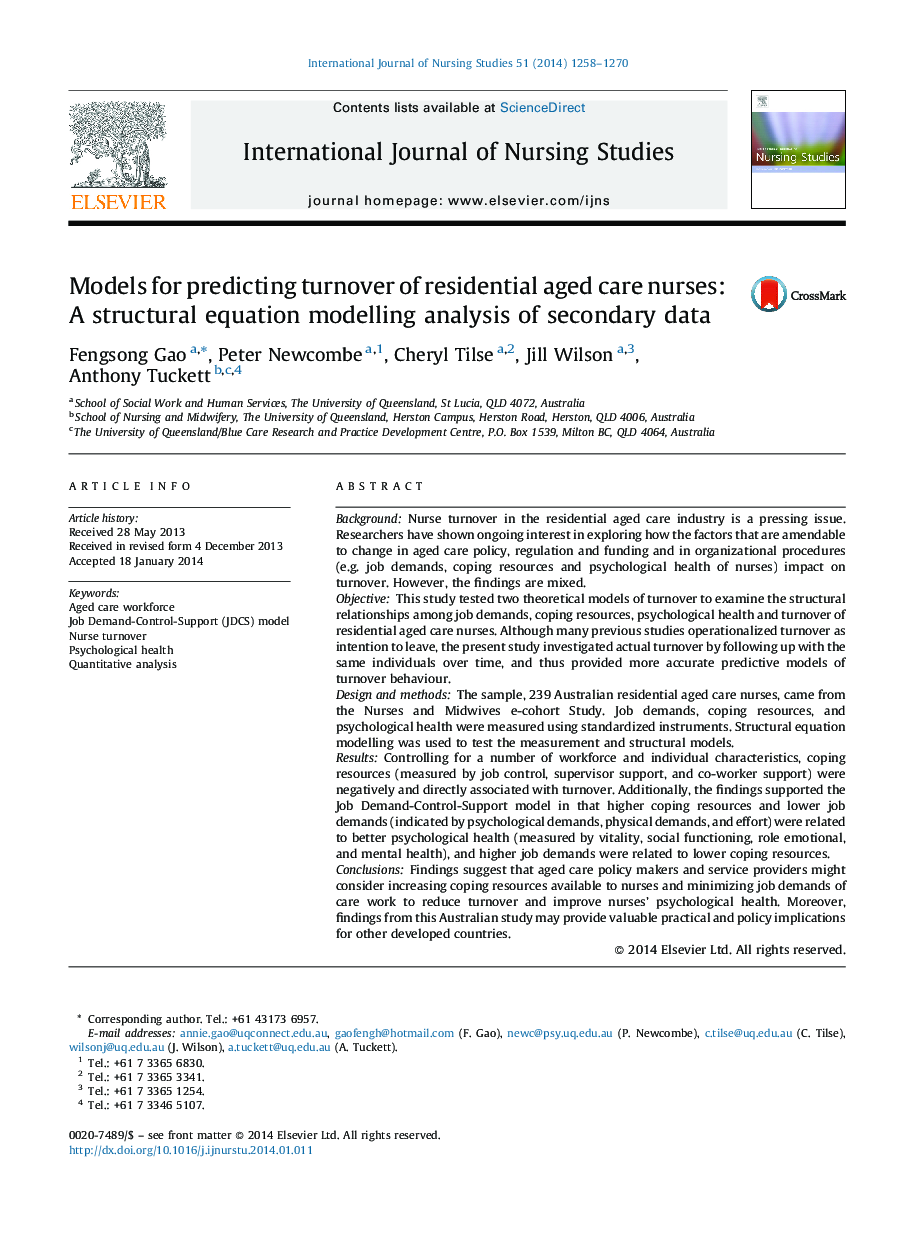| کد مقاله | کد نشریه | سال انتشار | مقاله انگلیسی | نسخه تمام متن |
|---|---|---|---|---|
| 1076212 | 1486532 | 2014 | 13 صفحه PDF | دانلود رایگان |
BackgroundNurse turnover in the residential aged care industry is a pressing issue. Researchers have shown ongoing interest in exploring how the factors that are amendable to change in aged care policy, regulation and funding and in organizational procedures (e.g. job demands, coping resources and psychological health of nurses) impact on turnover. However, the findings are mixed.ObjectiveThis study tested two theoretical models of turnover to examine the structural relationships among job demands, coping resources, psychological health and turnover of residential aged care nurses. Although many previous studies operationalized turnover as intention to leave, the present study investigated actual turnover by following up with the same individuals over time, and thus provided more accurate predictive models of turnover behaviour.Design and methodsThe sample, 239 Australian residential aged care nurses, came from the Nurses and Midwives e-cohort Study. Job demands, coping resources, and psychological health were measured using standardized instruments. Structural equation modelling was used to test the measurement and structural models.ResultsControlling for a number of workforce and individual characteristics, coping resources (measured by job control, supervisor support, and co-worker support) were negatively and directly associated with turnover. Additionally, the findings supported the Job Demand-Control-Support model in that higher coping resources and lower job demands (indicated by psychological demands, physical demands, and effort) were related to better psychological health (measured by vitality, social functioning, role emotional, and mental health), and higher job demands were related to lower coping resources.ConclusionsFindings suggest that aged care policy makers and service providers might consider increasing coping resources available to nurses and minimizing job demands of care work to reduce turnover and improve nurses’ psychological health. Moreover, findings from this Australian study may provide valuable practical and policy implications for other developed countries.
Journal: International Journal of Nursing Studies - Volume 51, Issue 9, September 2014, Pages 1258–1270
